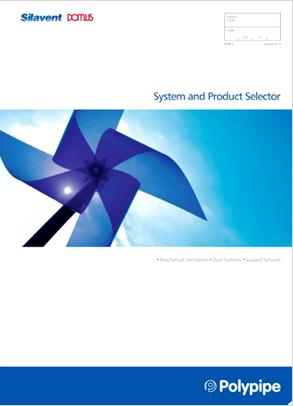Ventilation
For Ventilation products in Dartmouth & Kingsbridge, South Hams, Devon.
RGC stock a comprehensive range of duct ventilation, ducting, vents, grills, fans and weathering.
Why Is Ventilation Important?
Ventilation is the key to a happy, healthy home. Whether it’s to protect the health of you and your family, or to rid your home of unsavoury smells from cooking or pets, having proper ventilation is vital.
Along with these benefits, one of the main reason’s ventilation is so important is down to its moisture management.
Over the months or years of living in a space, materials such as wood, drywall and flooring can collect moisture and become damaged as a result.
Without ventilation in homes, condensation occurs profusely which can lead to the build-up of mould leaving a ‘damp’ smell – the worst nightmare of both a homeowner and house hunter.
Mould also releases harmful airborne toxins, which, when inhaled, can trigger a range of respiratory conditions such as asthma, dust allergies and hay fever.
Having proper airflow through your property keeps these key structural elements dry, protects them from decay, and prevents the poisonous fumes from mould – meaning you can rest easy at night knowing you’re breathing freshly-ventilated air under a solid structure.
What different types of Ventilation are there?
There are three methods that may be used to ventilate your residential property: natural, mechanical and hybrid (mixed-mode) ventilation.
Natural
Depending on climate, human behaviour and building design, natural forces can be used to ventilate properties.
Elements such as winds and thermal buoyancy force drive outdoor air through purpose-built openings, which can be windows, doors, chimneys, wind towers and trickle ventilators.
Natural ventilation is also often referred to as passive ventilation, a system that effectively circulates air and regulates internal air temperature.
Mechanical
Ventilation fans can be installed into a home to drive airflow, either being placed directly into windows or walls, or into air ducts.
The type of mechanical ventilation used depends on climate - for instance, in humid weather infiltration may need to be prevented to reduce condensation, and in cold climates exfiltration would need to be minimized through negative pressure ventilation.
This is the best solution to preventing condensation, as it can lead to a whole host of damp and mould problems which will not only make your home smell but affect the health of you and your loved ones.
Hybrid or Mixed-Mode
This style of ventilation relies on natural forces to provide the air flow rate, and when it is too low, it uses mechanical ventilation.
This can come in the form of exhaust fans which increase ventilation rates in rooms, particularly effective in hospitals or care homes where airborne infection is present.
Subsequently, these systems should be used with care and due diligence.
Should I invest in ventilation?
Evidently, following the previous discussion, ventilation is most important in older buildings. Most older homes were designed to self-ventilate, with windows and doors used to regulate airflow.
However, as discussed, this is not necessarily the best way to ventilate a home as it is heavily reliant on the unpredictable outdoor climate.
So, perhaps if you own an old building, investing in a range of mechanical ventilation solutions is the best way to protect not only the durability of your property, but yours and your family’s health.





